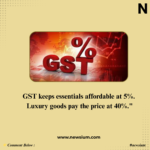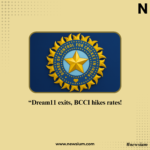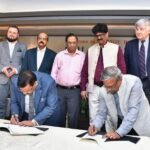“Trump-Modi Relations Sour Ex-US NSA Bolton Says ‘Very Good’ Ties Are Over”

In a startling admission that echoes across diplomatic corridors, former U.S. National Security Adviser John Bolton recently declared that the once-celebrated personal rapport between former President Donald Trump and Indian Prime Minister Narendra Modi “is gone now.” Bolton warned that such personal connections “won’t protect” world leaders from Trump’s unpredictable behavior. This blunt announcement arrives amid a severe downturn in U.S.–India relations—the deepest in decades—triggered mainly by an escalating trade war and perceived slights on geopolitical matters.
The End of a ‘Beautiful Bromance’
At the height of their so-called friendship, Trump and Modi shared charged public displays: from mutual praise to strategic summit charters. Bilateral enthusiasm peaked during Modi’s U.S. visit in February 2025, a moment Trump dubbed “MAGA plus MIGA,” aiming to herald a “mega partnership” between the two democracies.
Their camaraderie also featured prominently at international gatherings like the 2019 “Howdy Modi” rally in Houston, emblematic of the bond between the populist leaders on both sides of the globe.
That relationship, however, began unraveling by mid-2025, as policy differences turned personal, and strategic interests diverged.
Flashpoint: Trade Tensions and Tariffs
The most overt rupture lies in U.S. trade policy. In July and August 2025, the Trump administration slapped staggeringly high tariffs—reaching 50%—on Indian goods, citing India’s continued imports of Russian oil and military equipment. This punitive move marked a dramatic shift from the earlier “Mission 500” — plans to double bilateral trade to $500 billion by 2030.
India responded by denouncing the tariffs as “unfair, unjustified and unreasonable,” pointing out that the U.S. and EU continued substantial trade with Russia without such reprisal. Economists like Jeffrey Sachs criticized the move as myopic and self-defeating for the U.S., while analysts warned that the tariffs risk pushing India closer to BRICS and eroding long-term strategic trust.
This trade escalation deepened what officials and experts now describe as one of the worst crises in the U.S.–India relationship in two decades.
Geopolitical Fallout: India Drawn Eastward
Bolton didn’t mince words: he said that Trump’s tariff strategy and erratic diplomacy have “set U.S.-India relations back decades,” and have effectively “pushed Modi closer to Russia and China”.
Indeed, India’s renewed engagement with the Shanghai Cooperation Organisation (SCO), including visible camaraderie between Modi, Vladimir Putin, and Xi Jinping, has been interpreted as a deliberate pivot away from reliance on U.S. goodwill. Analysts note that while underlying mistrust still persists between India and China, the shift highlights New Delhi’s desire for strategic autonomy amid Western unpredictability.
Bolton went further, connecting the diplomatic pivot with a broader risk to American interests: he warned of a rising “axis of authoritarian powers” united by geography and circumstance—China, Russia, North Korea, Iran, Belarus, and even India—as U.S.–India alignment weakens.
What Sank the Relationship: Phone Calls, Peace, and Tariffs
The unraveling began earlier, with symbolic diplomatic misfires. A June 17 phone call stands out: Trump claimed he had brokered a peace deal between India and Pakistan—something Modi refused to acknowledge. Worse still, Modi declined to publicly endorse Trump’s self-assigned bid for a Nobel Peace Prize.
This incident was more than embarrassing; it signaled a growing divergence in diplomatic priorities, and preceded both the tariff onslaught and a visibly cool international posture from both sides.
Mixed Signals from Washington
As relations frayed, Washington sent conflicting signals. Some White House officials—like Secretary of State Marco Rubio and U.S. Trade Representative Jamieson Greer—pushed for rapprochement through potential trade deals offering reduced Indian tariffs. But their efforts fell flat as Trump demanded India sever ties with Russia first.
Compounding the strain, Trump advisor Peter Navarro publicly accused India of supporting Russia’s war in Ukraine, inflaming domestic sentiments and further straining economic and diplomatic channels.
India’s Tactical Responses
India sought to safeguard its strategic autonomy while navigating the fallout. The Ministry of External Affairs called U.S. tariffs “unfair” and emphasized India’s right to pursue independent energy and defense policies.
Meanwhile, experts warned that tariffs could jeopardize up to 70% of India’s exports to the U.S. and undermine key sectors in its economy. Supply chain plans involving major global companies were disrupted, and protests erupted—farmers in Punjab burned effigies of Trump and decried perceived hypocrisy.
Although rumors surfaced about India halting major U.S. defense procurements, the Defence Ministry swiftly refuted those claims, stating acquisition processes remain unaffected.
The Lasting Impact: A Strategic Reset
Experts and analysts widely describe the current moment as a strategic reset in U.S.–India relations. Fareed Zakaria, Kenneth Juster, and other commentators argue that Trump’s tariff policy reversed decades of bipartisan diplomacy and may irreparably damage trust.
Members of the U.S. House Foreign Affairs Committee have criticized the tariffs, arguing they hurt Americans and sabotage a foundational partnership. Some warn that unless top-level diplomacy is resumed, Quad regional cooperation and broader Indo-Pacific balance may unravel.
Yet, despite the rupture, analysts acknowledge the resilience built into the relationship. With shared democratic values, long-standing defense cooperation, and mutual concerns like countering Chinese influence, restoration remains possible—but will require more than personal goodwill; it will demand structural confidence and clear alignment.
Recent Posts
Categories
- Actor4
- Actress7
- Assam1
- Bank4
- Bihar5
- Biography2
- Bollywood4
- Business11
- Company9
- Cricket7
- Economy24
- Education7
- Election3
- Entertainment71
- External Affairs Defence Security1
- Finance1
- Football2
- Haryana1
- Health2
- Hollywood2
- Home2
- India84
- India10
- Industry6
- Karnataka1
- Kerala1
- Latest News77
- lifestyle1
- Maharashtra10
- Market7
- Politicians13
- Politics29
- Press Release798
- Social8
- Sports29
- Tamil Nadu2
- Technology25
- Tollywood3
- World49
- World17
Related Articles
PM GatiShakti’s Network Planning Group Reviews Infra Projects
India’s infrastructure is evolving at a pace never seen before. From world-class...
ByNewsium DeskOctober 17, 2025Karnataka Okays Bengaluru Corridor to Cut Traffic 40%
A Long-Awaited Step Toward a Smoother Bengaluru Bengaluru — often called the...
ByNewsium DeskOctober 17, 2025Kerala SIT Arrests Prime Accused in Sabarimala Gold Case
Major Breakthrough in Temple Gold Case The Special Investigation Team (SIT) of...
ByNewsium DeskOctober 17, 2025Bihar Polls 2025: BJP Unveils First List of 71 Candidates
A Political Season Begins in Bihar The stage is officially set for...
ByNewsium DeskOctober 14, 2025














Leave a comment